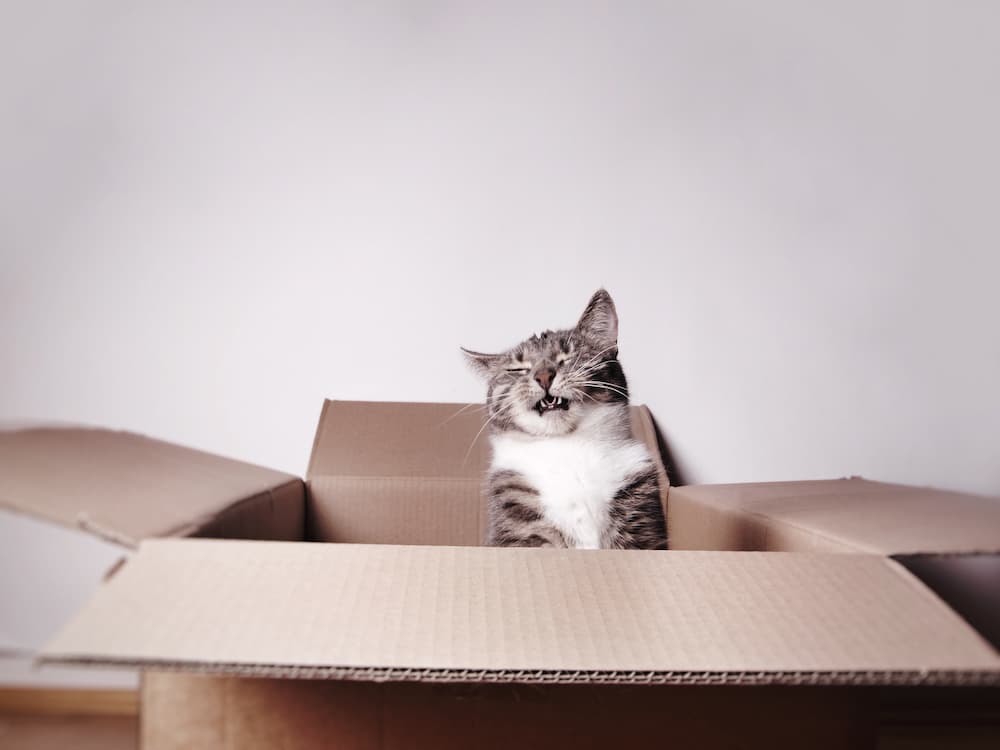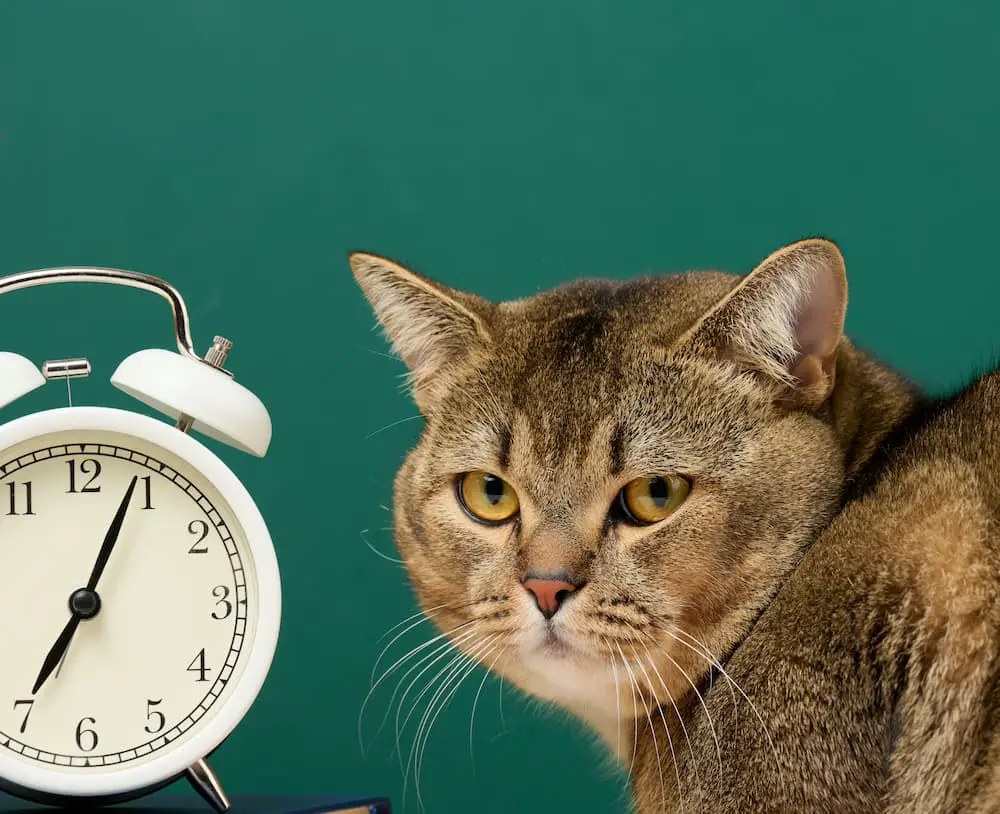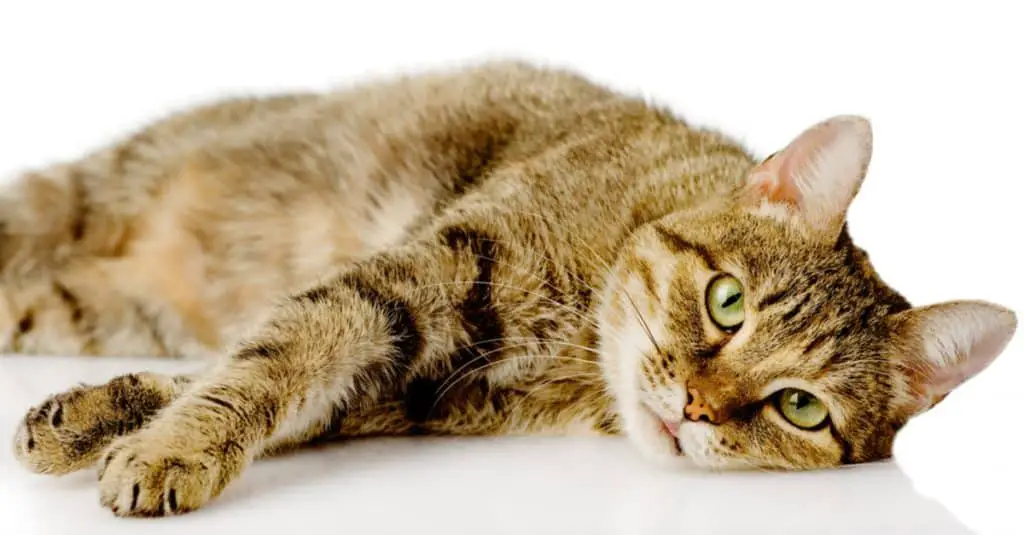By Dr. Sam Kovac

You’ve probably experienced it yourself. You’re cuddling your cat, enjoying their warmth and the rumble of their purr, and then they turn to you. And the breath that washes over you is so foul that it makes you gag. Bad breath in cats is a common complaint, and yet it isn’t something you should ignore. In fact, it’s a sign that something is wrong with your cat and you need to take them to the vet and get it addressed. Here’s what you need to know about your cat’s bad breath.
Causes of Bad Breath in Cats
There are a few common causes of bad breath in cats. This includes:
Dental Problems
This is probably the most common cause of bad breath in cats and affects around 75 percent of cats over the age of 3. Cats can’t brush their teeth, so you’ll need to take your cat to the vet for teeth cleaning so bacteria and saliva don’t build up and turn into plaque. This can turn into tartar and into dental diseases such as gingivitis or gum inflammation. It can also cause stomatitis, which is an inflammation of the mouth’s mucous linings.
If you think that your cat has dental problems, here are some other common signs that mean you need to take your cat to the vet for a dental treatment:
- Drooling
- Difficulty eating
- Inflamed gums
- Favouring one side when chewing.
- Excessive brown tartar on the teeth.
A Poor Diet
Your cat’s diet can also contribute to bad breath. So, if your cat eats a lot of smelly food like fish or liver-based ingredients, you may want to change their diet. Sometimes the most loved cats are given their favourite foods, but these are often soft (like kangaroo mince or other wet, tasty foods) and do nothing to scrub the surface of the teeth.

Metabolic Diseases
Bad breath in cats can also be a sign of deeper problems. Kidney disease is quite common in older cats. This causes a build of toxins in the blood as the kidneys struggle to detoxify the body. And as the toxins build-up, this will cause bad breath. In actual fact, bad breath is often the first symptom a cat with kidney failure shows, and most often kidney disease is misdiagnosed as dental disease because of the bad smell coming from the mouth– so don’t ignore that ‘dragon breath’
Other conditions that can cause bad breath include liver disease and diabetes. So, make sure you get your vet to check your cat for these problems if they have healthy teeth and bad breath.
The Dangers of Dental Diseases in Cats
You mustn’t just ignore dental diseases in cats. Dental infections can lead to a range of health problems for your cat including:
- Sore teeth
- Difficulty eating
- Loose or missing teeth
- Pain or discomfort
Infections in the mouth can also spread to other areas of the body, causing nasty infections like ‘endocarditis’ which lead to heart failure, kidney diseases, autoimmune diseases, and arthritis.
Dental problems in cats are also a problem for you as well. If your cat has a dental infection and bites you, even if its gentle and affectionate, then you may develop an infection. This could lead to a long period of ill health, so it should be avoided.
Bad Breath Remedies
The easiest way to fix bad breath in cats is to take them to the vet and get the problem identified and fixed. Otherwise, you could spend a long time trying to guess what’s wrong and trailing remedies that don’t work. Here are some common remedies for bad breath in cats caused by dental problems:
Dental Treats
Dental treats that claim to freshen the breath don’t help to treat gingivitis. Most of the time, studies on these products show that they may lower tartar levels, but don’t address the underlying infection. They can be yummy though!
You can get higher quality cat treats that will help. Look for treats that will rub against the gums while your pet is eating. This includes chicken necks, which are often thought to be very helpful in the fight against dental problems in cats, but the reality is chicken necks are full of bacteria like E.coli and Salmonella and the bones of the chicken neck are so soft all they do is massage the gums and don’t actually help the dental health.
Supplements
Some supplements can help to promote good oral (and general) health in your cat. This includes:
- Omega-3 fatty acids like fish oil
- Probiotics like ‘Protexin’
- Natural enzymes
- Food-based antioxidants
You can try adding some of these to your cat’s diet and monitoring their dental health to see if they help. Just be warned that these supplements won’t usually correct a dental problem that already exists and aren’t a substitute for a yearly dental appointment with your cat’s vet.
Cat Breath Freshener
You can also buy cat breath freshener online these days. These products are put in your cat’s water dish and claim to be perfectly safe. However, don’t start using them without talking to your vet first.
Brushing your Cat’s Teeth
The best way to avoid bad breath because of dental problems is to brush your cat’s teeth. You should start doing this when your cat is very young, to get them used to it. Ask your vet about the right equipment and make sure that you’re using feline toothpaste, not the same paste that you use on your teeth. Human toothpaste can be toxic for cats.

Start slowly when you’re training your cat to let you brush their teeth. Move slowly through the different stages, proceeding only when your cat is comfortable, and giving treats regularly. Here are the stages of teaching your cat:
- Let your cat lick the toothpaste off your finger.
- When they’re comfortable, hold their lip while they lick.
- Touch the toothbrush to their teeth while they lick.
- Brush for a short time and treat afterwards.
- Brush for longer as they get comfortable.
The Dental Diet
Another way to prevent or help treat cat dental problems is with their diet. Here’s a quick guide to the best products:
Dry Food
You can find kibble that claims to help with dental problems but be wary when trying these products. Cats tend to swallow their food whole once it’s bite-sized rather than chewing it, so kibble products aren’t always as helpful as advertised. Look for products that are backed up by studies that show how they improve dental health in cats.
Canned Food
Canned food can be good for cats with bad breath as long as they’re filled with high quality ingredients. Many canned cat foods contain carbohydrates like corn or brewer’s rice. These are usually touted as ‘healthy’, but the truth is that a lot of carbohydrates can be bad for cats. Cats are mostly carnivorous and prefer a grain-free, moisture rich diet. If they’re eating canned food that contains carbohydrates, then it can cause inflammation and lead to dental problems.
Raw Food
A raw food diet would seem to be ideal for cats as it provides them with meat-rich nutrients without fillers.
Every cat is different, so what works for one cat probably won’t work for others. Many cats will thrive on a raw diet, but for others you may need to supplement with high-quality canned foods. It all depends on your cat, their preferences, and their physiology.
The Takeaway
If your cat has bad breath, you must take them to the vet before trying anything else. Your vet will be able identify the cause of the bad breath, which will prevent you from trying remedies that may be dangerous or expensive and just don’t work.
About the Author
Dr. Sam Kovac (BVSc (Merit), is the principal vet of the Lion’s Den Cattery. He followed his dream of becoming a veterinary surgeon that began at age three. Since that time, he has developed a strong interest in oncology, internal medicine, and animal behaviour. Now a Chartered Member of the Australian Veterinary Association, Dr. Sam continues his passion for providing the most up-to-date care to his patients and their two-legged family.
The Catington Post is reader-supported. That means, if you make a purchase through links on our site, we may earn an affiliate commission. All images and names which are not the property of The Catington Post are the property of their respective owners.







